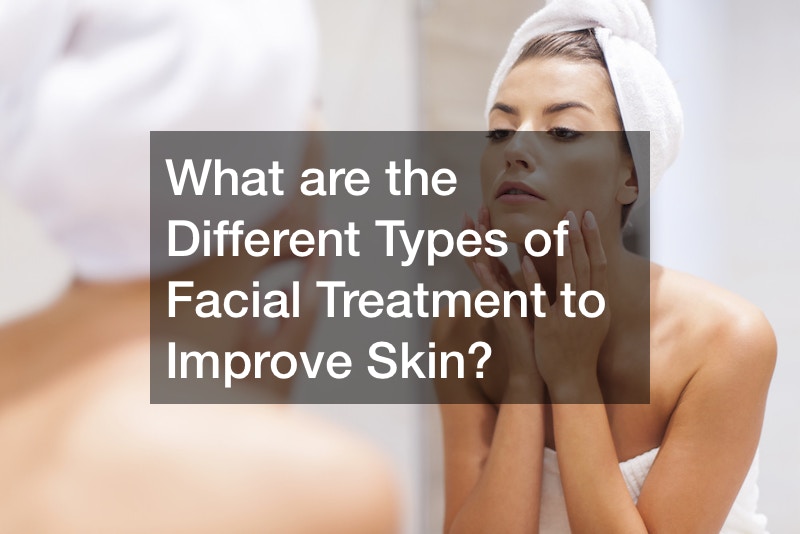
In the dynamic world of health and wellness, a variety of tools and techniques are available that extend far beyond the traditional paradigms of healthcare. With a continuous evolution in medical science and technology, individuals have access to advanced diagnostic tools, specialized medical treatments, and rejuvenating cosmetic solutions that can help to improve the quality of life. This article delves into ten different avenues that contribute to overall health improvement, emphasizing the importance of a holistic approach. We will explore how methods like the open MRI test can improve diagnostic accuracy, while dentists not only care for oral hygiene but also contribute to overall health. Furthermore, procedures carried out by a plastic surgeon can enhance confidence and health. Cosmetic skin solutions and hormone replacement therapies extend their benefits beyond aesthetic improvements to promote wellness.
1. Improving Health with Advanced Diagnostic Tools

Advanced diagnostic tools are pivotal in modern healthcare as they help to improve the precision and speed of medical diagnoses. The open MRI test is one of these revolutionary advancements, offering patients a less claustrophobic experience compared to traditional MRI machines. By providing clear and high-quality images, open MRI tests play a crucial role in the early detection of various conditions, thus allowing for timely interventions.
Open MRI tests are especially beneficial for patients who experience anxiety or discomfort in enclosed spaces, such as those who may suffer from claustrophobia. This technology ensures that more patients adhere to their diagnostic appointments, thus helping to improve overall diagnostic success rates. Furthermore, these tests accommodate larger or physically challenged patients, making quality healthcare accessible to a broader demographic.
Moreover, open MRI tests are instrumental in identifying neurological and orthopedic conditions, thus assisting physicians in crafting precise treatment plans. By integrating these diagnostic tools into routine healthcare practices, medical professionals help to improve patient outcomes and optimize healthcare services overall. The future of medical diagnostics undoubtedly relies on the continuing innovation and application of such advanced technologies.
2. Enhancing Your Oral Health for Overall Wellness
Oral health is a critical component of overall wellness, with a dentist playing a key role in ensuring your teeth and gums remain healthy. Regular dental check-ups and cleanings help to improve oral hygiene and can prevent various diseases, such as tooth decay and gum infections. Preventive dental care not only maintains dental aesthetics but also reduces the risk of systemic health issues linked to poor oral health.
For example, untreated dental problems can lead to infections that may affect the heart, consequently making dental care an essential component of overall healthcare. A dentist‘s interventions, such as fillings, crowns, and root canals, are vital for preserving natural tooth structures and preventing the escalation of minor issues into severe dental conditions. By addressing dental concerns promptly, dentists help to improve both self-esteem and physical health.
Moreover, maintaining oral health has been associated with enhanced mental health, as a clean and healthy mouth boosts confidence and promotes social engagement. This is why regular visits to a dentist are advocated as a part of a comprehensive approach to health. As research continues to reveal links between oral health and systemic conditions, the role of the dentist in providing holistic healthcare becomes all the more significant.
3. Boosting Confidence and Health Through Aesthetic Surgery
Aesthetic surgery, conducted by a plastic surgeon, serves as a transformative tool not only for appearances but for psychological and emotional well-being as well. Procedures like rhinoplasty, facelifts, and body contouring help to improve an individual’s self-image and confidence, which can have far-reaching effects on mental health and quality of life. Plastic surgeons are trained to tailor their approach to meet the specific needs and goals of their patients.
By correcting perceived physical imperfections, individuals often experience a boost in self-esteem, which can lead to improved social and professional interactions. More importantly, aesthetic surgery can also address functional impairments. For instance, reconstructive surgeries restore form and function following trauma or congenital defects, thus highlighting the broader health benefits provided by these interventions.
Plastic surgery also offers solutions for patients who have undergone significant weight loss, enabling them to remove excess skin and improve bodily comfort. In facilitating these changes, plastic surgeons help to improve physical mobility and promote a positive body image. As people increasingly acknowledge the benefits of aesthetic surgery beyond mere cosmetic enhancements, the role of the plastic surgeon becomes pivotal in fostering both confidence and health.
4. Rejuvenating Your Skin with Effective Cosmetic Treatments

Cosmetic skin solutions are an integral part of maintaining youthful, vibrant skin, contributing significantly to enhancing personal appearance and boosting confidence. Treatments such as chemical peels, microdermabrasion, and laser therapies help to improve skin texture and radiance by addressing concerns like acne, scars, and hyperpigmentation. These non-invasive solutions offer significant improvements with minimal downtime.
By targeting the deeper layers of the skin, cosmetic treatments stimulate collagen production, leading to smoother and more firm skin over time. This helps to improve not only the aesthetic aspect of the skin but also its overall health. Treatments tailored to individual skin types and concerns yield optimal results, empowering individuals to attain a rejuvenated appearance.
Furthermore, regularly investing in cosmetic skin solutions can help to prevent the onset of more severe dermatological issues by maintaining skin wellness. By proactively managing skin health, individuals can enjoy long-term benefits and an extended youthful appearance. Cosmetic practitioners play a critical role in providing guidance and expertise to help individuals make informed decisions about their skincare routines.
5. Achieving Hormonal Balance for Better Health
Hormonal balance is essential for various bodily functions, influencing everything from mood and energy levels to metabolic processes. Hormone replacement therapies have emerged as a viable option for those experiencing hormonal deficiencies or imbalances, particularly during transitional phases such as menopause. These therapies aim to restore hormonal equilibrium and help to improve quality of life.
The targeted approach of hormone replacement involves personalized treatments that cater to the specific needs of individuals, ensuring optimal outcomes. Such interventions can alleviate symptoms like fatigue, mood swings, and sleep disturbances, thereby enhancing overall well-being. By carefully monitoring and adjusting hormone levels, healthcare providers help to improve physical vitality and mental clarity.
Moreover, achieving hormonal balance has a profound impact on long-term health, reducing the risk of chronic conditions such as osteoporosis and cardiovascular diseases. As awareness of the importance of hormonal health grows, the integration of hormone replacement into comprehensive healthcare plans becomes increasingly significant. Medical professionals specializing in endocrine health provide invaluable support in navigating the complexities of hormonal treatments.
6. Refreshing Your Look and Skin with Botox
Botox remains a popular choice for individuals seeking to enhance their appearance by reducing the visibility of fine lines and wrinkles. This minimally invasive procedure helps to improve facial aesthetics, offering a rejuvenated and youthful look. Botox injections temporarily relax facial muscles, smoothing out skin creases and preventing the development of new wrinkles.
The procedure is favored for its quick recovery time and immediate results, attracting individuals who wish to maintain a youthful visage without undergoing extensive surgery. Besides cosmetic benefits, Botox has therapeutic applications as well, including managing chronic migraines and excessive sweating, further demonstrating its versatility in healthcare.
Patients report a significant boost in self-esteem following Botox treatments, as the rejuvenated appearance enhances confidence in social and professional interactions. As research continues to expand on its benefits, Botox remains a key player in the field of aesthetic and therapeutic medicine, assisting practitioners in their efforts to help improve both appearance and quality of life.
7. Supporting Your Body’s Healing with Holistic Medicine

Holistic medicine encompasses a wide range of therapies that focus on treating the whole person, addressing their physical, emotional, and spiritual needs. Integrating holistic practices like acupuncture, herbal remedies, and meditation can significantly help to improve overall health by stimulating the body’s natural healing processes. These complementary therapies work alongside conventional medicine to enhance health outcomes.
By concentrating on the root causes of health issues rather than symptoms alone, holistic practitioners foster a deeper understanding of the interconnectedness between mind, body, and spirit. This approach not only addresses existing conditions but also helps to prevent future health challenges. Practitioners of holistic medicine aim to empower individuals to take an active role in their health journey.
Moreover, holistic practices can relieve stress and improve mental well-being, essential components of maintaining health equilibrium. As more people seek out natural and less invasive healing options, holistic medicine continues to grow in popularity, providing a valuable complement to modern healthcare practices. This integrative approach ultimately helps to improve health by promoting harmony and balance.
8. Maintaining Healthy Vision for an Active Lifestyle
The significance of maintaining healthy vision cannot be overstated, as it impacts various aspects of life, including independence, safety, and active living. Regular eye exams conducted by local optometrists help to improve vision health by identifying issues like refractive errors, glaucoma, and retinal disorders at an early stage. Early detection ensures timely interventions and prevents vision deterioration.
Modern techniques in optometry, such as digital retinal imaging, offer precise assessments of eye health. Local optometrists provide comprehensive eye care that goes beyond prescription lenses, contributing to overall health management. By offering advice on visual ergonomics and protective eyewear, they support active lifestyles for individuals of all ages.
Vision health is closely linked to quality of life, influencing both physical activities and cognitive functions. Ensuring regular eye exams becomes a critical part of preventive healthcare, with optometrists playing a crucial role in helping to improve sight and mitigate risks associated with vision problems. Preserving healthy vision contributes significantly to maintaining independence and engaging in everyday activities.
9. Relieving Pain and Enhancing Mobility
Chronic pain and mobility issues significantly impact daily functioning and quality of life. Targeted interventions, such as those for sciatica relief, help to improve mobility and reduce pain. Techniques like physiotherapy, chiropractic adjustments, and massage therapy are effective in managing pain and restoring physical function, allowing individuals to return to their regular activities.
Sciatica relief is crucial for those suffering from persistent lower back and leg pain, which can limit physical capabilities. Comprehensive treatment plans often include exercises for strengthening and flexibility, assisting in the prevention of future occurrences. This holistic approach ensures long-term pain management and improved physical well-being.
Maintaining mobility is not only vital for physical health but also supports an active and fulfilling life. By addressing pain through a combination of medical and therapeutic interventions, healthcare providers help to improve overall health and encourage an active lifestyle. The focus remains on patient-centered care designed to empower individuals and enhance their quality of life.
10. Optimizing Your Health with Targeted Nutrient Therapy

Targeted nutrient therapy, such as local IV therapies, offers an innovative approach to optimizing health by delivering essential vitamins and minerals directly into the bloodstream. This method helps to improve nutrient absorption and provides immediate benefits, particularly for those with deficiencies or those recovering from illness. Local IV therapies are tailored to address specific health needs, ensuring a customized treatment.
For individuals facing chronic conditions or high-stress lifestyles, IV therapies facilitate rapid replenishment of vital nutrients, leading to enhanced energy levels and improved immune function. These therapies are gaining traction as they help to improve overall wellness by supporting the body’s natural processes efficiently. Advancements in nutrient therapy offer expanded opportunities for personalized healthcare, making it a popular choice for those seeking preventive health measures. By supplementing traditional health practices, local IV therapies contribute to a holistic approach to health management, ultimately leading to improved physiological function and well-being.
The trajectory of healthcare is increasingly moving towards integrative and personalized approaches that take comprehensive care of the individual. From advanced diagnostic tools like the open MRI test to holistic practices and nutrient therapies, a wide range of options exists to address every facet of health. Dentists, plastic surgeons, and optometrists offer specialized care that encompasses preventive, corrective, and aesthetic objectives, helping to improve overall well-being. Techniques such as Botox and hormone replacement continue to break new ground in non-invasive treatments that blend functional and aesthetic benefits. By investing in cosmetic skin solutions and sciatica relief techniques, individuals cultivate a balance between appearance and physical health. Each element of health discussed in this article plays a pivotal role in maintaining and enhancing life quality, with targeted care solutions and healthcare professionals working collaboratively towards better health outcomes.




